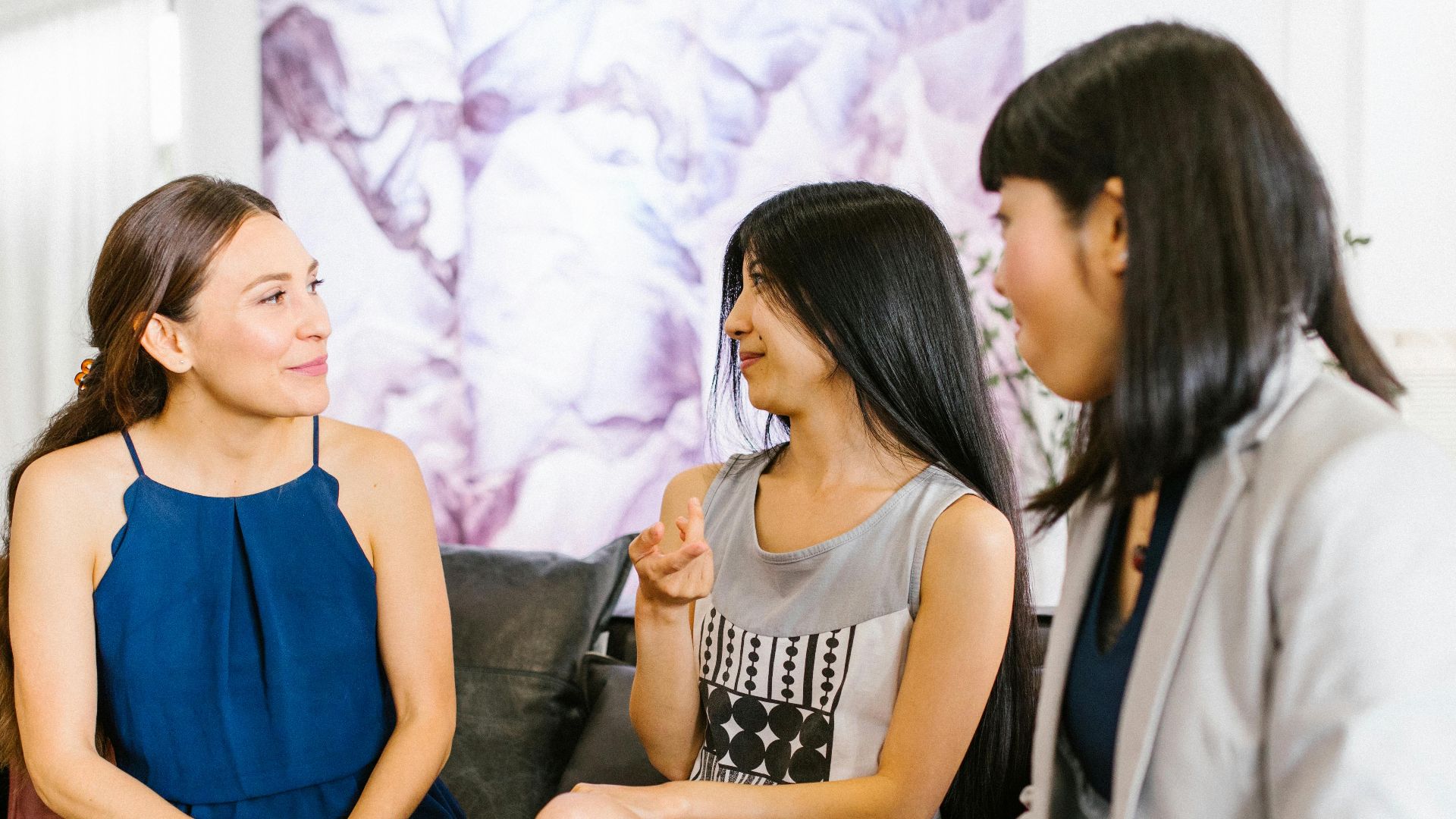When Friendships Start Fading
Friendship is one of the most valuable and powerful forces in life, but it doesn’t always stay the same. As people grow, dynamics change and some bonds fail to keep pace. So, if you’re feeling you no longer vibe with an old friend, it might just be true. Let's start with 10 signs that suggest your current friendship with someone does not suit you anymore.
1. Conversations Feel Forced
Once-flowing conversations now feel like work. You find yourself stretching small talk just to fill silences. Meaningful dialogue has taken a backseat to outdated gossip or recycled stories, and as a result, you may even avoid calls, as a five-minute chat can sometimes feel like an hour.
2. They Dismiss Your Growth
Friends who once cheered you on now belittle your new goals. Instead of encouragement, you get eye rolls. This often stems from a fear of change. If you've started a business or gone back to school, their discomfort can turn into sabotage, which you no longer look forward to.
 Photo By: Kaboompics.com on Pexels
Photo By: Kaboompics.com on Pexels
3. Shared Interests Have Disappeared
Previously, your group may have bonded over clubs or classes. Now, your passions diverge. You’re excited about fitness or travel while they’re glued to past routines. This lack of common ground often leads to repetitive plans that feel like obligations rather than genuine hangouts.
4. You Feel Drained After Hanging Out
Instead of feeling recharged after spending time with them, you leave drained. Psychologists call this emotional labor—constantly managing your energy to keep things light. When the effort outweighs the enjoyment, your friendship may be more about nostalgia than real connection.
 Photo By: Kaboompics.com on Pexels
Photo By: Kaboompics.com on Pexels
5. They Avoid Accountability
Growth often involves tough conversations, but these friends dodge responsibility. You bring up something that hurts you, and they accuse you of being sensitive. Chronic deflection like this can stunt personal development. If they can’t take feedback, long-term trust begins to erode fast.
 Priscilla Du Preez 🇨🇦 on Unsplash
Priscilla Du Preez 🇨🇦 on Unsplash
6. You Can’t Be Your Full Self Around Them
When friends mock your interests, it's a sign your paths have seriously shifted. You often find yourself toning down your values to avoid conflict with them. As a result, authentic expression becomes risky. This self-editing can feel stifling over time, and one day you won't be able to take it anymore.
7. Conflict Is Constant
You're arguing all the time or tiptoeing to save your peace of mind. Healthy friendships allow space for disagreement, but not at the cost of emotional safety. If every conversation leads to friction—or if issues get buried—it signals a breakdown in solid friendships.
8. They Compete More Than Support
Instead of celebrating your wins, they constantly compare your achievements to theirs. Whether it’s career moves, relationships, or personal growth, every conversation becomes a subtle competition. This undermines trust and suggests insecurity or resentment—two traits that rarely foster long-term friendship.
9. They Show No Interest In Your Life
You listen to their stories, but your updates go ignored. If they never ask follow-up questions about your goals, challenges, or achievements, it suggests they’re not interested. Also, when they forget your work presentation but remember their trivia night score, take note.
10. You’ve Grown In Self-Awareness
Personal growth often sharpens your emotional intelligence and self-worth. But if your friends still practice blaming others or enjoy gossiping, it creates emotional distance. Recognizing their behavior as toxic or stagnant isn’t disloyalty; it’s awareness.
Recognizing these signs can be uncomfortable, but they reflect personal growth and evolving needs. They're also the first step toward healthier relationships. So, the next ten strategies can help you manage this change without unnecessary drama.
1. Reflect Without Guilt
Outgrowing friends isn’t a betrayal—it’s personal evolution. Take time to journal or speak with a therapist about what’s changed. Reflecting helps clarify whether the friendship can adapt or not. Understand that quality relationships matter more than quantity, particularly when emotional health is at stake.
2. Initiate Honest Conversations
Bring up the changes you’ve noticed without sounding accusatory. Use “I” statements and keep the tone grounded in curiosity. Sometimes, friendships survive change when both sides acknowledge the shift. Also, a direct talk might reveal mutual frustration or spark a willingness to evolve together.
3. Create Healthy Boundaries
If certain friends constantly drain your energy, reestablish limits. Boundaries protect your emotional well-being and create clarity in relationships. That could mean saying no to late-night calls or avoiding toxic group chats. Consistent boundaries are essential for sustaining any mature connection.
4. Explore New Social Circles
Start joining communities that align with your current interests. This could mean attending local workshops or taking classes. Finding people who match your pace and mindset isn’t about replacing old friends but about expanding your support system and finding who really suits you now.
5. Limit Contact Gradually
Rather than ghosting, reduce how often you reach out or respond. Let this change happen naturally by stepping back from old routines. Some friendships fade without confrontation when contact becomes infrequent. Reduced interaction often leads to a mutual slowdown in emotional investment without hurtful fallout.
6. Understand That Friendships Can End
Some connections serve a purpose during a short, specific phase of life. A few others might dissolve after years of fun and togetherness. The truth is that every relationship, including platonic friendships, can end. If that happens when goals or beliefs change, accept this reality to find peace.
7. Focus On Mutual Growth Opportunities
If there's still respect and affection, suggest new shared experiences that reflect your current self. Invite them to join a group, retreat, or trip. Friendships that evolve together tend to deepen, particularly when both parties engage in meaningful, forward-looking activities.
8. Reassess The Friendship’s Role In Your Life
Not every friend needs to fulfill a strong emotional need. Some friendships work best in limited contexts, like shared hobbies or group settings. For example, gym buddies or office colleagues. Recognizing a friend as a “fun companion” rather than a confidant can ease the pressure to connect deeply.
9. Learn To Grieve Without Reopening Old Wounds
Losing a childhood friend can feel like mourning a version of yourself. When that happens, allow space and time to process that grief without rekindling dynamics that no longer serve you. Honestly acknowledge what made it work and the truth about why it changed.
10. Invest In The Friendships That Still Align
Put your energy into people who support your growth and offer a reciprocal connection. These are the friends who can fuel your mental and emotional health. So, spend intentional time nurturing those bonds the right way. Adults with strong core friendships often report higher life satisfaction.

























